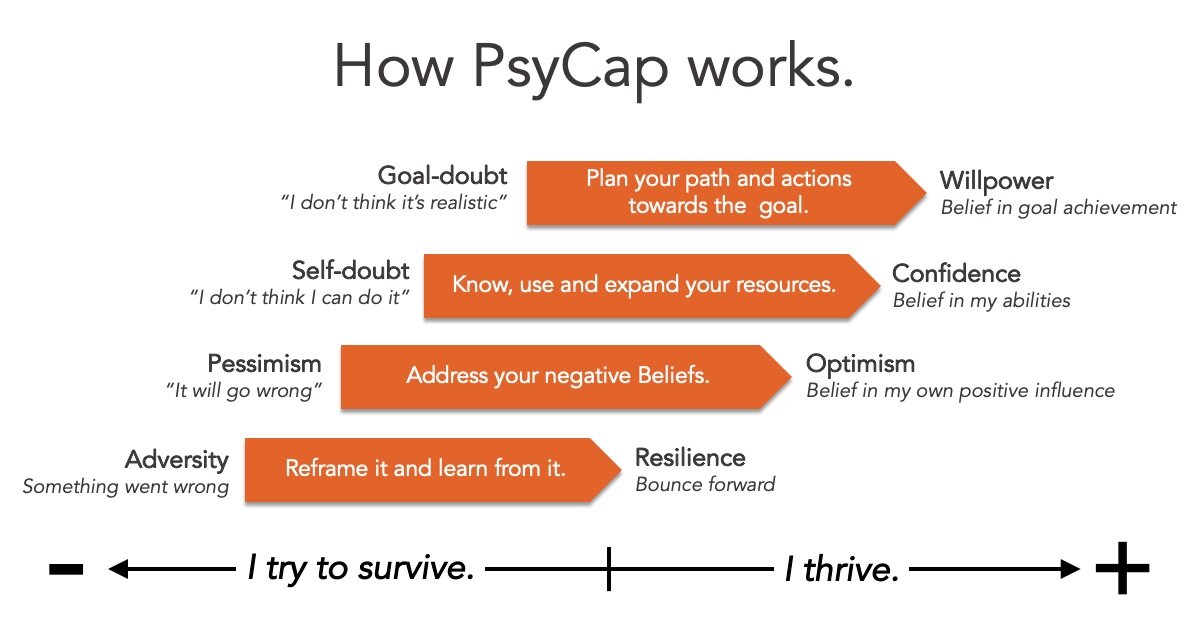Understanding The Importance Of Middle Managers In Today's Workplace

Table of Contents
The Crucial Role of Middle Managers in Bridging the Gap
Middle managers act as the crucial bridge between upper management and frontline employees. Their effectiveness directly impacts an organization's ability to achieve its strategic objectives.
Translating Strategic Goals into Actionable Tasks
Middle managers are responsible for translating high-level strategic goals, often abstract and complex, into concrete, actionable tasks for their teams. This requires excellent communication skills and a deep understanding of both the overall organizational strategy and the capabilities of their teams.
- Examples of translation: Breaking down a company-wide sales target into individual team quotas, outlining specific steps for implementing a new software system, defining measurable milestones for a new product launch.
- Effective communication strategies: Using clear and concise language, holding regular team meetings, providing regular feedback and updates, using visual aids to clarify complex information.
- Overcoming challenges in interpretation: Addressing ambiguities in strategic directives, proactively seeking clarification when needed, ensuring consistent interpretation across teams. This requires strong strategic implementation skills.
Fostering Teamwork and Collaboration
Building strong, collaborative teams is paramount to achieving organizational goals, and middle managers play a central role in this process. They are responsible for fostering a positive and productive work environment where team members feel supported, valued, and empowered.
- Team-building activities: Organizing team-building exercises, facilitating collaborative projects, encouraging open communication channels.
- Conflict resolution strategies: Mediating disagreements, promoting constructive feedback, creating a culture of mutual respect and understanding.
- Promoting open communication: Encouraging regular communication among team members, fostering transparency, and creating a safe space for feedback and suggestions.
- Mentorship: Providing guidance and support to team members, helping them develop their skills and advance their careers. This fosters a strong sense of team cohesion.
Performance Management and Employee Development
Middle managers are directly responsible for evaluating employee performance, providing regular feedback, and supporting employee growth. This involves a combination of performance monitoring and proactive development initiatives.
- Performance review processes: Conducting regular performance reviews, using objective metrics to evaluate performance, providing constructive feedback and coaching.
- Providing constructive criticism: Delivering feedback in a supportive and constructive manner, focusing on both strengths and areas for improvement.
- Identifying training needs: Recognizing skill gaps and providing opportunities for professional development and training.
- Career development planning: Working with employees to create individual development plans, supporting their career aspirations, and identifying opportunities for advancement. This contributes significantly to employee development.
Challenges Faced by Middle Managers in the Modern Workplace
Despite their critical role, middle managers face numerous challenges in today's rapidly changing business environment.
Navigating Organizational Change and Uncertainty
Adapting to rapid organizational changes and external market fluctuations is a constant challenge. Middle managers must be adept at change management and possess strong resilience.
- Adaptability: Quickly adjusting strategies and plans in response to unexpected changes.
- Change management strategies: Implementing effective change management strategies to minimize disruption and maximize employee buy-in.
- Communication during change: Keeping employees informed and engaged throughout periods of change.
- Navigating ambiguity: Effectively operating in situations where information may be incomplete or uncertain. This demands strong adaptability.
Managing Up and Down Effectively
Middle managers face the complex task of managing both their superiors and their subordinates, often juggling competing priorities and expectations. This requires strong negotiation and conflict resolution skills.
- Effective communication strategies: Communicating effectively with both upper management and their teams, clearly articulating needs and concerns.
- Negotiation skills: Negotiating effectively with different stakeholders to balance competing priorities and achieve mutually beneficial outcomes.
- Conflict resolution: Addressing and resolving conflicts effectively, promoting collaboration and cooperation.
- Delegation: Delegating tasks effectively to empower team members and improve efficiency. Strong delegation is a key leadership skill.
The Impact of Technology and Automation
The increasing adoption of technology and automation is transforming the role of middle managers. They must adapt to new technologies and leverage them to improve efficiency.
- Adapting to new technologies: Learning and adopting new technologies to improve workflow and productivity.
- Leveraging technology for efficiency: Utilizing technology to streamline processes, automate tasks, and improve data analysis.
- Training needs: Identifying and addressing training needs for themselves and their teams to ensure proficiency in new technologies.
- The importance of digital literacy: Developing and maintaining strong digital literacy skills to effectively navigate the digital workplace. Upskilling and reskilling are crucial.
Investing in and Empowering Middle Managers for Organizational Success
Organizations must invest in and empower their middle managers to realize their full potential and contribute to organizational success.
Providing Training and Development Opportunities
Investing in training programs is crucial for enhancing the skills and capabilities of middle managers. This includes leadership development programs, communication workshops, and strategic planning training.
- Leadership training: Providing training in leadership styles, team management, and motivational techniques.
- Communication workshops: Improving communication skills, including active listening, feedback delivery, and conflict resolution techniques.
- Strategic planning courses: Developing skills in strategic thinking, planning, and execution.
- Technology training: Providing training on the latest technologies and software relevant to their roles. This is crucial for effective middle management in a technology-driven world.
Creating a Supportive and Empowering Work Environment
Organizations should foster a culture that values and supports middle managers, providing them with the resources and autonomy they need to succeed.
- Open communication channels: Creating open communication channels for feedback and suggestions.
- Recognition and rewards: Recognizing and rewarding the achievements of middle managers.
- Opportunities for advancement: Providing opportunities for career advancement and professional growth.
- Work-life balance initiatives: Supporting work-life balance through flexible work arrangements and other initiatives. This fosters employee engagement and wellbeing.
Measuring the Impact of Middle Management
Organizations should establish metrics to measure the effectiveness of their middle management teams and their contribution to overall organizational success.
- Key performance indicators (KPIs): Identifying and tracking key performance indicators related to team performance, employee engagement, and strategic goal achievement.
- Employee satisfaction surveys: Conducting regular employee satisfaction surveys to gauge employee morale and identify areas for improvement.
- Team performance reviews: Conducting regular team performance reviews to assess overall team effectiveness and identify areas for improvement. This allows for data-driven improvements in middle management strategies.
Conclusion
Middle managers are the backbone of any successful organization. They bridge the gap between strategic vision and operational reality, fostering collaboration, driving performance, and nurturing talent. However, they face significant challenges in today's dynamic environment, including navigating change, managing competing demands, and adapting to technological advancements. Investing in effective middle management is not just beneficial, it’s essential. By providing training, creating a supportive work environment, and measuring their impact, organizations can empower their middle managers to reach their full potential and drive organizational success. Recognize the crucial role of your middle managers and invest in their development – it's a key ingredient for building a high-performing and thriving organization. Empowering middle managers translates directly into an empowered workforce and a more successful future.

Featured Posts
-
 Papal Conclaves Explained The Process Of Electing A New Pope
Apr 22, 2025
Papal Conclaves Explained The Process Of Electing A New Pope
Apr 22, 2025 -
 Pope Francis 1936 2024 His Life And His Message Of Compassion
Apr 22, 2025
Pope Francis 1936 2024 His Life And His Message Of Compassion
Apr 22, 2025 -
 Ev Mandate Backlash Car Dealers Renew Their Opposition
Apr 22, 2025
Ev Mandate Backlash Car Dealers Renew Their Opposition
Apr 22, 2025 -
 Covid 19 Pandemic Lab Owners Guilty Plea For Fake Test Results
Apr 22, 2025
Covid 19 Pandemic Lab Owners Guilty Plea For Fake Test Results
Apr 22, 2025 -
 Russia Intensifies Ukraine Offensive With Deadly Air Strikes Us Proposes Peace Plan
Apr 22, 2025
Russia Intensifies Ukraine Offensive With Deadly Air Strikes Us Proposes Peace Plan
Apr 22, 2025
